Protesters rally in their thousands against Israeli cabinet's policies for 32nd week
Thousands of protesters have rallied for the 32nd straight week against the hard-right Israeli cabinet's policies, including its controversial campaign to shake up the regime's judicial apparatus.
The rallies were held on Saturday, with the coastal city of Tel Aviv drawing the biggest crowd as was the case in previous weeks.
"I came to protest here for the 32nd week in a row. We come here each week ... [in protest] against the coup that the Israeli" cabinet "is trying to do," one of the protesters was quoted by Reuters as saying in Tel Aviv rally.
"I am here for the 32nd week in a row, this is my 32nd Saturday night. I am here. And I am here because I believe that [what Israeli Prime Minister Benjamin] Netanyahu ... [is] doing ... is dangerous," another protester said.
"Israel is being torn apart and we feel we are on the brink of a civil war," Peleg, who is a doctor, said, adding that Netanyahu's cabinet "needs to be overthrown."
Hundreds of protesters marched toward the residence of the Knesset speaker following the protests at the nearby Kaplan junction in Tel Aviv, where they faced the regime's forces who tried to disperse them.
Similar rallies were also held in other locations across the occupied territories, including in the cities of Haifa, Netanya, and Herzliya, in the occupied city of al-Quds, and in the southern town of Ashdod.
According to Israeli media, over 1,500 protesters gathered outside the residence of the regime's president in al-Quds.
The hard-right cabinet of Netanyahu, which includes far-right and ultra-Orthodox parties, triggered the demonstrations in January by announcing the so-called judicial overhaul plan, which it then forwarded to the Knesset in the form of several bills.
The changes seek to enfeeble the regime's Supreme Court in the face of the political elite by rendering the former incapable of striking down the decisions that are made by the latter. Other proposed changes include giving the Israeli cabinet a greater say in the appointment of judges to the court.
Ever since its onset, the protest movement has snowballed into the biggest to have ever been faced by the occupying entity throughout its history.
Public outrage against the regime's policies has grown since last month, when the Knesset passed the first bill of the judicial overhaul plan after opposition lawmakers left the session. The bill scrapped the "reasonableness" law, through which the Supreme Court can overturn decisions made by Israeli cabinet such as ministerial appointments.
Opponents have described the overhaul drive as an attempt by Netanyahu, who stands accused in several corruption cases, to overturn future verdicts against him.
The protests have also seeped into the military, where an increasing number of army reservists have been threatening to stop reporting for duty in a show of their opposition to the overhaul scheme.
This has prompted the Israeli top brass to warn that the cabinet's determination to push through with the reform bills risks the regime's "war readiness."
The chief of the Israeli Air Force warned on Friday that the state of the force’s readiness is “worsening” as dozens of reservist pilots have declared they would no longer show up for volunteer duty in protest against the policies of the incumbent far-right cabinet.
Major General Tomer Bar said “the current assessment is that the Air Force is competent,” but added that “there is harm [to its readiness] that is worsening.”
He said the calls on reservist pilots not to show up for volunteer duty “harm” the regime’s military.
D-8’s role in Iran’s economy after Cairo summit
China slams US as ‘war-addicted’ threat to global security
China ‘firmly opposes’ US military aid to Taiwan
VIDEO | Press TV's News Headlines
President Yoon Suk Yeol to be removed from office
At least 19 Gazans killed by Israeli airstrikes since dawn: Medics
Leader: Iran neither has nor needs proxy forces
US fighter aircraft shot down ‘in friendly fire’ amid aggression on Yemen


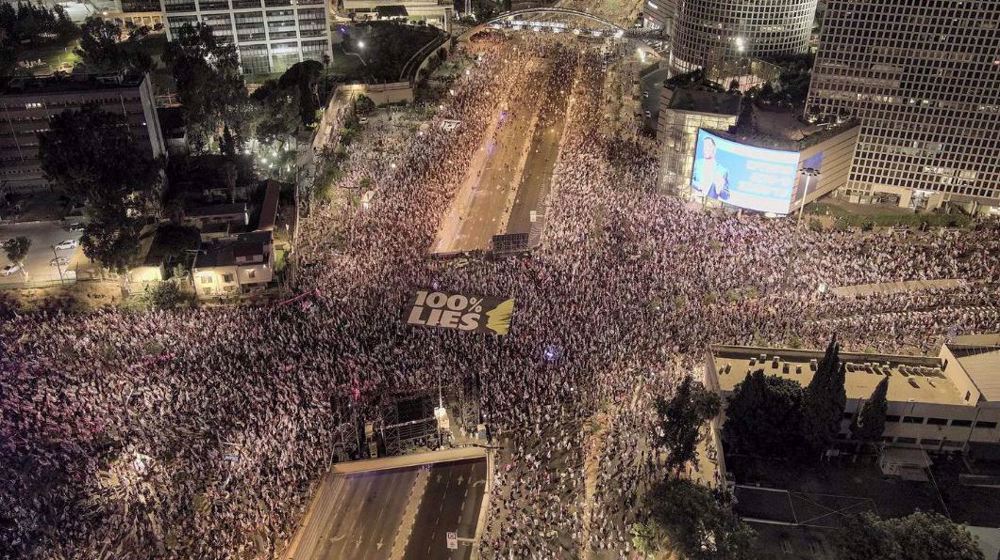
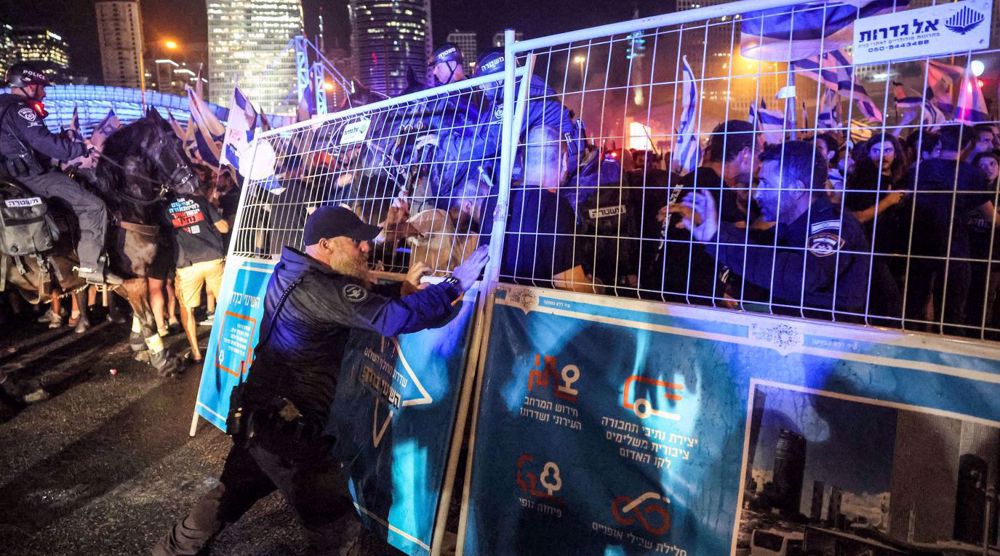

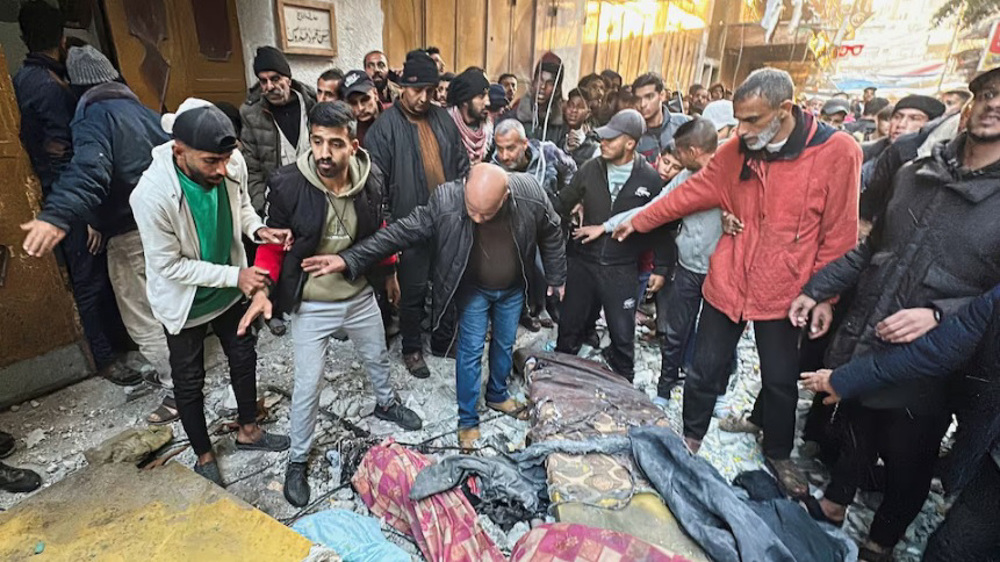
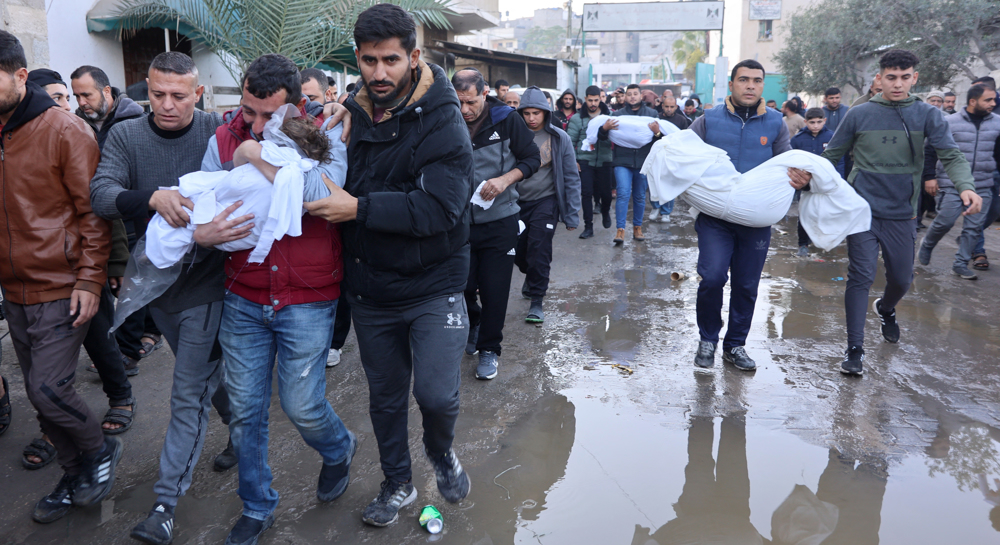




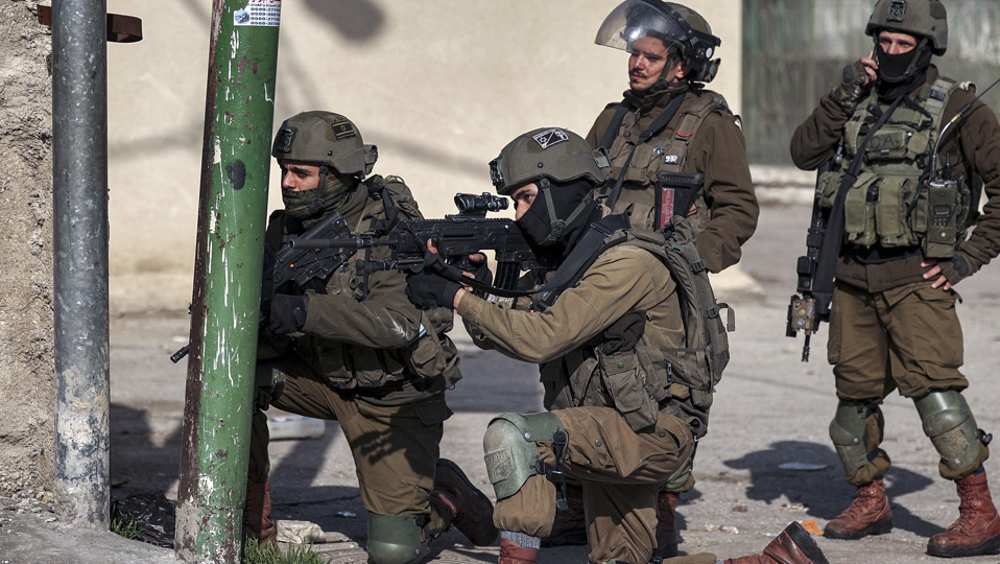
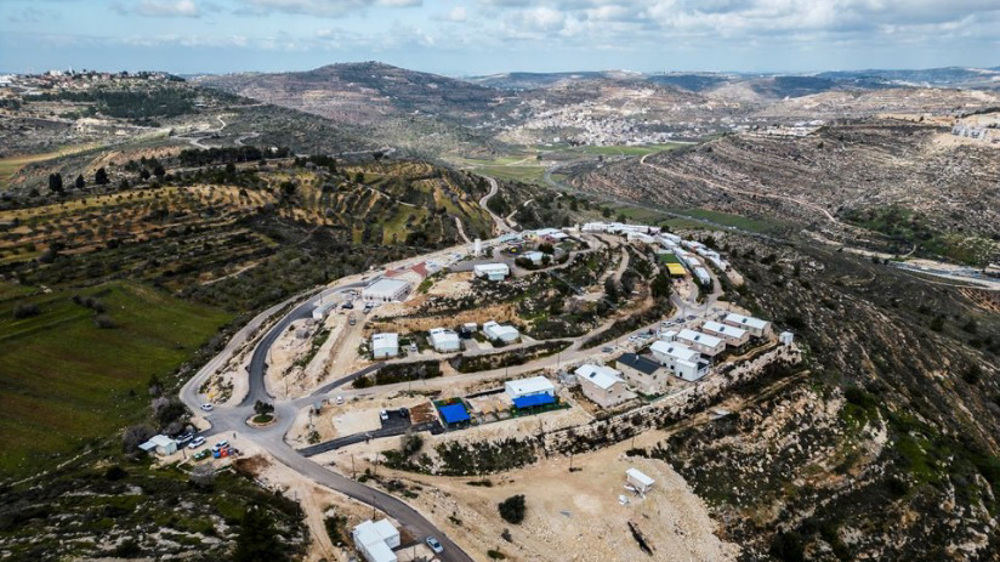

 This makes it easy to access the Press TV website
This makes it easy to access the Press TV website